If you want your church to be found online, mastering Church SEO is key.
This guide cuts through the clutter, providing clear, actionable steps to boost your search rankings and ensure those seeking a faith community find you. Ready to connect with more members? Let’s dive in.
Key Takeaways
We get it, this is a big guide. If you don’t have time to read the whole thing, have no fear. Here is a shortlist of all of the key takeaways:
SEO is key for churches, enabling them to show up in ‘near me’ searches and connect with the local community effectively, while maintaining a balance with global SEO to reach a wider audience.
A successful church website must be mobile-friendly, easy to navigate, and optimized with relevant keywords to rank high on search engines, enticing potential members at the first point of contact.
Building a strong local SEO foundation through claiming your Google Business Profile, encouraging reviews, and accurate listings can drive local engagement and boost online presence.
- Looking for help with Local SEO for your church? Start with a 100% free Local SEO Report delivered to your inbox.
Estimated reading time: 1 minute
Table of Contents
- Key Takeaways
- The Importance of Church SEO
- The Four Pillars of Church SEO
- Local vs. Global SEO: Finding the Right Balance
- Creating a Church Website That Ranks High in Search Engines
- Optimizing Your Church’s Online Content
- Building a Strong Local SEO Foundation
- Harnessing the Power of Social Media for Church SEO
- Tracking Your Church SEO Progress
- Leveraging Off-Page SEO Techniques
- Maintaining Your Church’s SEO Success
- Frequently Asked Questions
- Church SEO
- More on Church SEO
The Importance of Church SEO

Search Engine Optimization, or SEO, is a technique used to improve a website’s visibility on search engines like Google. But what does this mean for a church? SEO can boost a church’s online presence, allowing it to connect with more individuals, enhance its influence, and ultimately expand its congregation.
Local SEO, which focuses on making a website visible in local search results, holds particular significance for churches. This is because individuals searching for a new church often focus on their local area. When churches claim and optimize their listings on local directories, they set up a strong local presence. This, in turn, enhances local search optimization and broadens their reach within the community.
In addition to local SEO, keyword research is another crucial aspect of a successful SEO strategy. By understanding the online search behavior of their audience, churches can create top-notch, relevant content that not only positions them as industry leaders but also draws in a larger number of website visitors.
Ultimately, the purpose of SEO is to make a church’s website more visible to people searching for related content, helping them connect with potential members looking for faith-based communities.
The Four Pillars of Church SEO

In the realm of Church SEO, the foundation for success rests on four critical pillars: Local SEO, On-Page SEO, Link Building, and Technical SEO.
Each of these pillars plays a unique and vital role in boosting your church’s online presence, ensuring it shines brightly in the digital landscape.
- Local SEO focuses on making your church visible and accessible to your immediate community, a key factor for those seeking a faith home nearby.
- On-Page SEO involves optimizing the content on your church website itself, making it not only engaging and informative but also easily discoverable by search engines.
- Link Building is the art of creating quality connections with other websites, establishing your church’s authority and relevance in the wider web.
- Technical SEO addresses the behind-the-scenes elements of your website, ensuring it is structured and runs smoothly for both search engines and users.
Together, these four pillars form a robust strategy, elevating your church’s digital footprint and connecting you with more hearts and souls in your community and beyond.
Let’s dig a little deeper.
Local SEO for Churches
What is Local SEO?
Local SEO is the strategic enhancement of your church’s online presence to rank higher in local search results.
It’s about targeting geographical keywords and optimizing local listings to ensure your church is prominent in searches like ‘churches near me’.
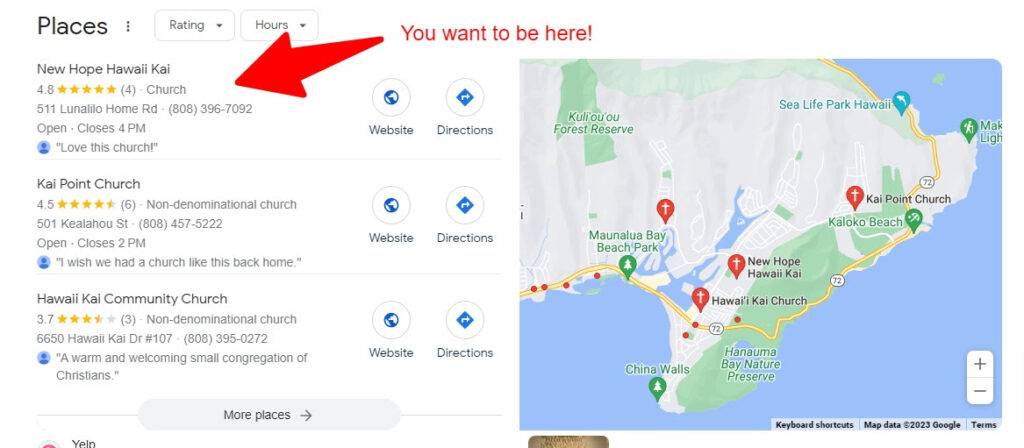
This involves meticulous optimization of your Google Business Profile and refining your website’s content to resonate with local community interests.
Local SEO is crucial because it aligns your church’s online visibility with its physical location, bridging the gap between digital discovery and physical attendance.
Why Local SEO Matters
Local SEO is essential for churches looking to increase their presence in their immediate community. It enhances your visibility, making your church the go-to option for local seekers. This not only leads to more visitors but also fosters a sense of trust and community belonging.
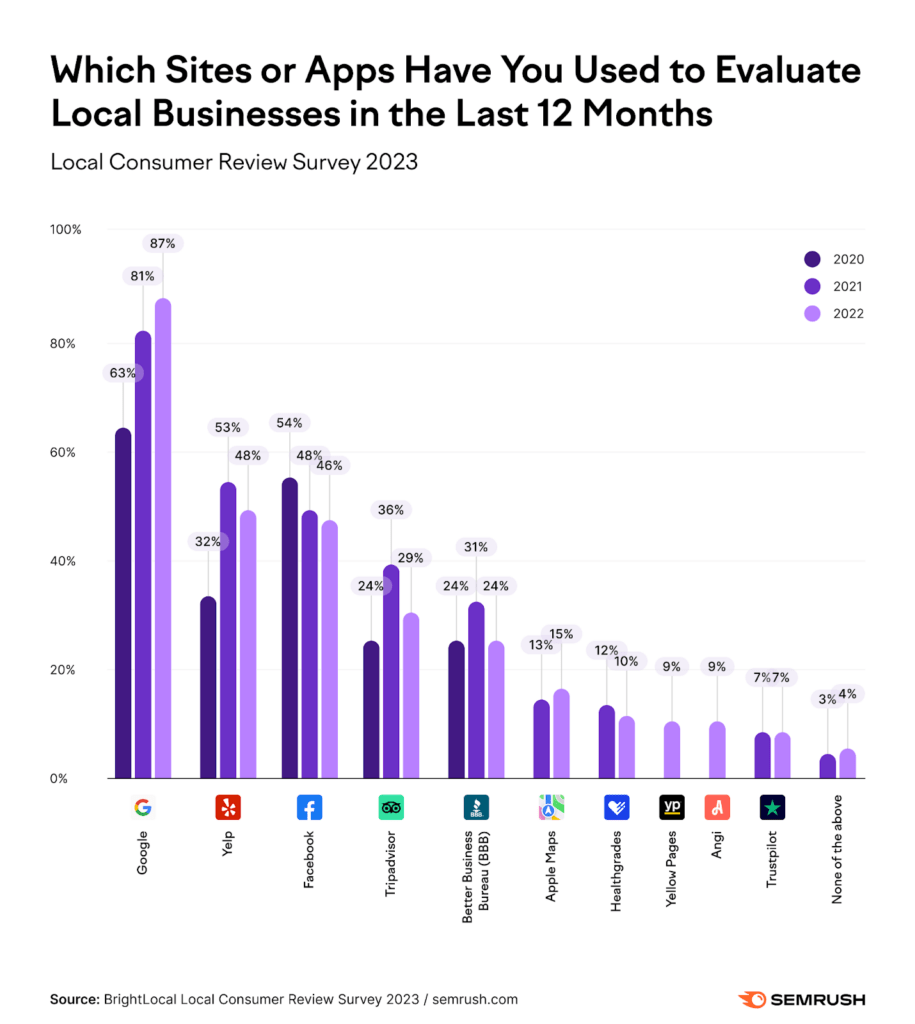
In an increasingly digital-first world, where people often turn to online searches to find local information, having a robust Local SEO strategy is indispensable for connecting with those in search of spiritual guidance and community involvement.
How Do You Do It?
Effective Local SEO involves several key actions:
- Google Business Profile: Claim and thoroughly optimize your church’s profile, ensuring all information is accurate and comprehensive, including service times, contact details, and a link to your website.
- Website Optimization: Incorporate local keywords, such as your city or neighborhood, into your website’s content, titles, and meta descriptions. Ensure your site is mobile-friendly, considering the high volume of local searches performed on mobile devices.
- Encourage Reviews: Prompt your congregation to leave positive reviews on your Google Business Profile and other online directories. These reviews can significantly enhance your church’s credibility and search rankings.
3 Strategies for Churches to Consider
- Community Engagement and Partnerships: Increase your local visibility by actively participating in community events and forming partnerships with local organizations. Document these activities on your website and social media, using local keywords and hashtags to boost your local search relevance and engagement.
- Local Content Creation: Develop content that addresses local issues or highlights community involvement. Blog posts, local event summaries, and stories showcasing your church’s impact on the area are great ways to weave in local keywords and improve your local search footprint.
- Comprehensive Local Directory Listings: Ensure your church is listed in various local online directories, not just Google Business Profile. Regularly update these listings with current information, photos, and event details to keep your church’s online information consistent and engaging.
On-Page SEO for Churches
What is On-Page SEO?
On-Page SEO refers to the practice of optimizing individual web pages to rank higher in search engines and earn more relevant traffic.
For churches, this means carefully crafting and structuring your website’s content, from text to images, to be both user and search engine friendly.
It involves using appropriate keywords, optimizing meta tags, creating quality content, and ensuring your site’s usability.
This form of SEO is about making each page on your church’s website an entry point for potential visitors, helping them find exactly what they’re looking for – be it service times, community events, or spiritual guidance.
Why On-Page SEO Matters
On-Page search engine optimization is critical because it directly impacts how search engines understand and value your website’s content. Proper optimization ensures that your church’s website is not only found but also deemed relevant and valuable for users searching for religious and community-related information.
This practice increases your site’s visibility and click-through rate. Moreover, well-optimized pages contribute to a better user experience, encouraging visitors to spend more time on your site, explore various pages, and engage more deeply with your church online.
How Do You Do It In Your Church?
Implementing On-Page SEO for your church website involves several key steps:
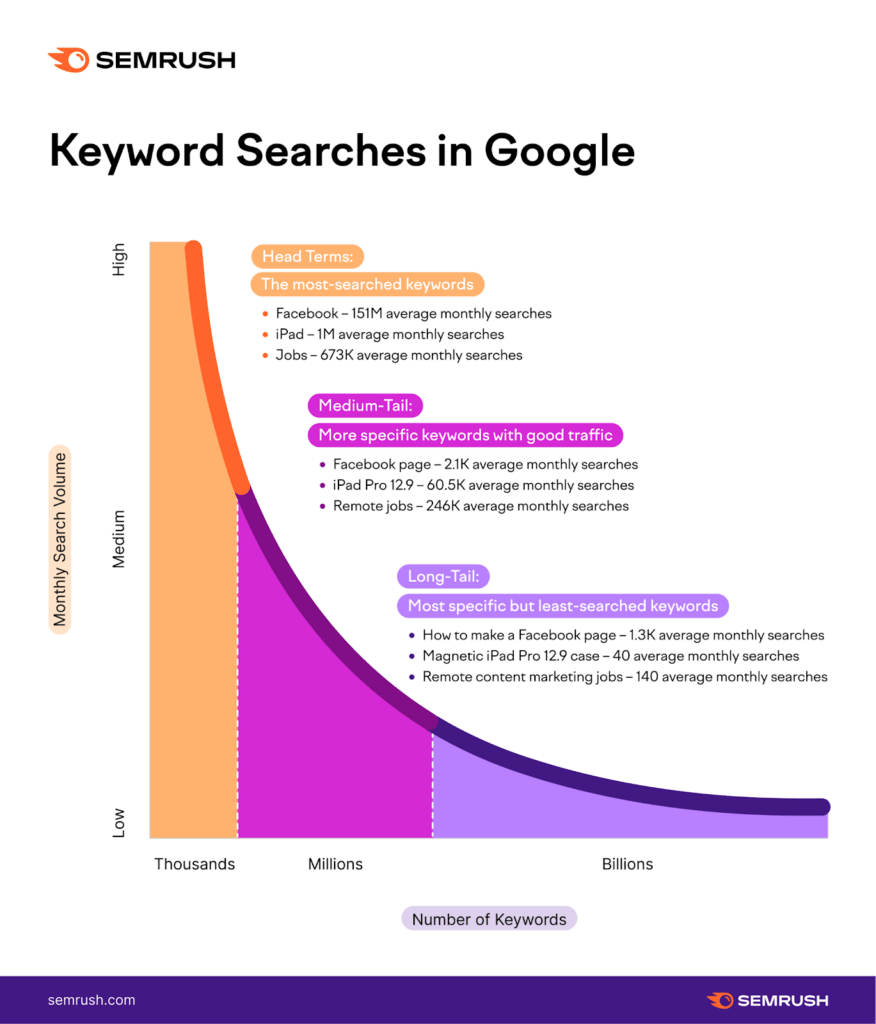
- Keyword Optimization: Identify and strategically incorporate keywords that your potential visitors are using to search for churches or religious services in your area.
- Content Quality: Create high-quality, engaging content that addresses the needs and interests of your audience, such as information about your church, its history, mission, community activities, and sermons.
- Meta Tags and Descriptions: Optimize title tags and meta descriptions to accurately reflect the content of each page, incorporating relevant keywords without overstuffing.
- Image Optimization: Use relevant images and optimize their file names and alt text with appropriate keywords, ensuring they contribute to your SEO efforts while enhancing user experience.
3 Strategies for Churches to Consider
- Regular Content Updates: Keep your website dynamic and engaging by regularly updating content. This could include weekly sermon summaries, blog posts on religious topics, or updates about church events and community activities.
- User-Friendly Website Design: Ensure your website is easy to navigate, loads quickly, and is accessible on various devices, particularly mobile phones. A user-friendly design not only helps keep visitors on your site longer but also positively impacts search engine rankings.
- Internal Linking: Use internal links wisely to guide visitors to related content on your site. This not only helps with user navigation but also allows search engines to crawl your site more effectively, understanding the structure and relevance of your content.
Link Building for Churches
What is Link Building?
Link Building is the process of acquiring hyperlinks from other websites to your own. For churches, this means encouraging external sites to link back to your church’s website.
These links act as endorsements or votes of confidence in the eyes of search engines, boosting your site’s authority and search engine rankings.
Effective link building can significantly increase your church’s online visibility and credibility. It’s about creating a network of connections that not only enhances SEO but also broadens your church’s digital outreach.
Why Link Building Matters
Link Building is a critical component of SEO because search engines like Google use links as a primary means of determining a website’s quality and relevance.
High-quality backlinks from reputable websites signal to search engines that your church’s website is a valuable resource, worthy of ranking higher in search results.
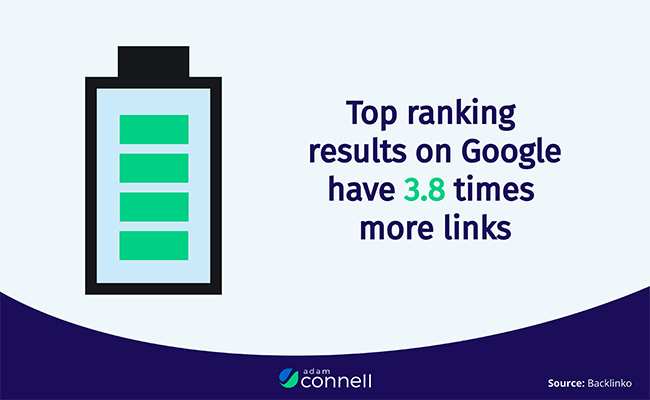
This not only improves your church’s online presence but also drives more organic traffic to your site. Moreover, strategic link building can help you reach a broader audience and establish your church as an authority in religious and community matters.
How Do You Do It?
Effective Link Building for churches involves several strategies:
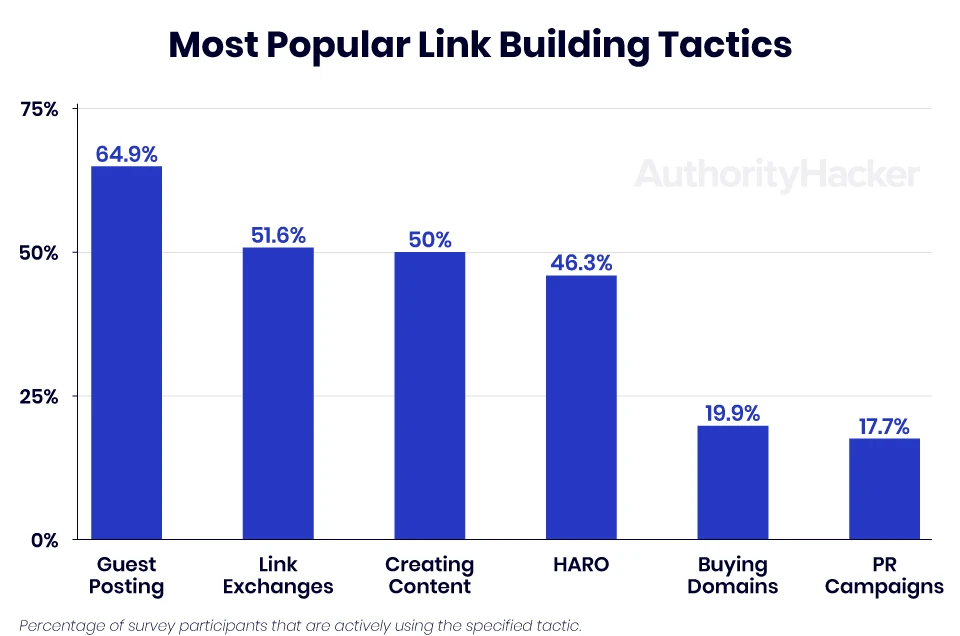
- Content Creation: Produce high-quality, shareable content like blog posts, event summaries, and sermon transcripts. Great content naturally attracts backlinks from other sites.
- Community Engagement: Participate in community events, collaborations, or local charity initiatives, and leverage these activities to gain links from local businesses, news outlets, and community blogs.
- Online Directories and Partnerships: List your church in online directories and establish partnerships with religious organizations, local businesses, and educational institutions that can link back to your site.
3 Strategies for Churches to Consider
- Guest Blogging and Collaborations: Write guest articles for religious publications or collaborate with local community bloggers. These partnerships often provide opportunities for backlinks to your church’s website.
- Social Media Engagement: Use social media platforms to share your content and engage with your community. While social media links are typically no-follow, they increase the visibility of your content and can lead to natural backlinks from other websites.
- Leverage Testimonials and Reviews: Encourage members of your congregation to write testimonials or reviews about your church on their websites or blogs. Personal stories and experiences can be a powerful source of authentic backlinks.
Technical Church SEO
What is Technical SEO?
Technical SEO refers to the process of optimizing the infrastructure of your church’s website to help search engines crawl and index it more effectively.
It involves aspects like website speed, mobile-friendliness, secure connections (HTTPS), structured data, and clean code.
Essentially, it’s about making sure that your website’s technical foundation is solid, enabling search engines to understand and rank your site’s content efficiently.
For churches, this means ensuring that the website is not only content-rich but also technically optimized for search engine algorithms.
Why Technical SEO Matters
Technical SEO is crucial because it directly affects your website’s ability to rank in search engines. A technically sound website provides a good user experience, which is a key factor in search engine rankings.
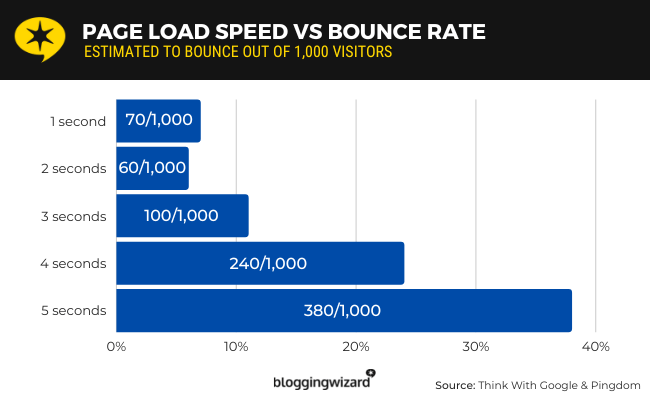
If your site loads slowly, isn’t mobile-friendly, or has complex navigation, it could negatively impact your SEO efforts. Search engines favor websites that are easily accessible, navigable, and provide secure browsing.
For churches, this means that technical SEO isn’t just about pleasing algorithms, but also about ensuring a pleasant and safe online experience for your congregation and potential visitors.
How Do You Do It?
Implementing Technical SEO for your church website includes:
- Mobile Optimization: Ensure your website is responsive and provides a seamless experience on mobile devices.
- Site Speed: Improve your website’s loading time by optimizing images, minifying CSS and JavaScript, and leveraging browser caching.
- Secure Website (HTTPS): Use a secure HTTPS connection to protect your users’ data and improve your site’s trustworthiness in the eyes of search engines.
- Structured Data: Implement structured data (Schema Markup) to help search engines understand your site’s content and context, which can enhance your visibility in search results.
3 Strategies for Churches to Consider
- Regular Website Audits: Conduct regular technical audits to identify and fix issues like broken links, crawl errors, duplicate content, and poor mobile optimization.
- Optimize for Local Search: Implement local Schema Markup to enhance your visibility in local search results, making it easier for community members to find service times, events, and location information.
- Accessibility and User Experience: Ensure your website is accessible to all users, including those with disabilities. This includes clear navigation, alt text for images, and readable fonts. A user-friendly website not only helps with SEO but also aligns with the inclusive values of your church.
Local vs. Global SEO: Finding the Right Balance

While local SEO is crucial in helping churches connect with their immediate community, it doesn’t mean that they should ignore global SEO. In fact, a good SEO strategy should strike a balance between the two. Local SEO focuses on ranking for a specific locality, making it perfect for churches aiming to serve a particular community. On the other hand, general SEO targets national or global rankings, allowing a church to reach a broader online audience with their message.
Focusing on local searches is crucial for churches as it aligns with how people typically search for churches. When someone searches for ‘churches near me’, Google presents a map with local churches highlighted, showcasing the immediate and powerful impact of local SEO on a church’s online visibility.
Ensuring a church’s visibility both locally and globally involves tailoring content to the area, attracting more traffic with local event details, and excelling in local search results.
Incorporating essential information such as location, phone number, operating hours, service times, programs, and congregation photos in the church’s local listings strengthens local presence on major directories. This further enhances local search optimization and broadens the church’s community reach.
Creating a Church Website That Ranks High in Search Engines

Having a well-optimized church website is a key element in improving a church’s online presence. The website is often the first point of contact for potential new members, so it needs to:
Be easily discoverable
Make a good first impression
Be mobile-friendly
Be easy to navigate
Be optimized with relevant keywords to rank high in search engine results
Mastering keyword research is the key to unlocking the potential of your church website. By identifying the words and phrases people use to find churches online, you can optimize your website to match these search queries, including popular phrases such as ‘church near me’.
By focusing on these target keyword phrases and ensuring the page’s relevance to these keywords, you can help Google understand what your page is about, ultimately leading to improved search rankings.
Mobile-Friendly Design
In today’s digital era, it’s paramount for a church website to be responsive and accessible across different devices—this is referred to as a mobile-friendly design. Not only does it ensure a seamless experience for visitors, but it also keeps your website up-to-date with the latest trends. Google values responsive design, and a mobile-friendly layout can lead to improved search engine rankings.
Mobile-friendly design includes elements such as:
Responsive layout
Fast loading speed
Readability
Easy navigation
Clear call-to-action (CTA)
Mobile-first design
Optimized images
Consistent branding
Minimalistic design
Accessibility
Website Grader is a tool that can help you check if your church website is mobile-friendly. Ensuring easy website accessibility on mobile devices helps maintain quality and performance. This leads to an enhanced user experience, increased engagement, and keeps the website in line with current mobile browsing trends.
Easy Navigation
A user-friendly website with clear navigation is another key element of a successful church website. An easy-to-navigate website helps visitors find the information they need quickly and efficiently. This contributes to a positive user experience and better SEO.
Creating user-friendly website navigation involves focusing on:
Clear and intuitive menus
Responsive design adaptable to various devices
Simple design to prevent overwhelming users
Effortless navigation flow
Maintaining consistent layout throughout the website
Easy navigation can enhance a church’s SEO by:
keeping visitors engaged for longer durations
reducing bounce rates
demonstrating the website’s value to search engines
facilitating effective crawling and indexing by search engines
leading to improved search rankings.
Keyword Usage
Incorporating relevant SEO keywords, including target keywords, throughout your church website is a key component of a successful SEO strategy. By optimizing your website with keywords that potential visitors are likely to use in their searches, you can improve your search rankings and attract more visitors.
Google’s Autocomplete feature is a game-changer when it comes to uncovering popular search terms for churches. By simply typing in a keyword like ‘church’ and observing the Autocomplete suggestions, you can gain valuable insights into relevant keywords without even pressing enter.
By focusing on the keyword phrases like ‘church near me’ and integrating them appropriately into your website’s content, your church can improve its online visibility and search rankings. These keywords help Google understand what your page is about, ultimately leading to improved search rankings.
Optimizing Your Church’s Online Content

Creating and optimizing various types of content, such as blog posts, event listings, and sermons, is crucial for engaging your audience and improving your church’s online presence. High-quality, engaging content can keep your audience coming back for more and can also attract new visitors.
You can take your church website to the next level by creating a diverse range of engaging content for church websites. This includes:
Blog posts that provide informative articles and reflections
Event listings that inform your congregation about upcoming events
Recorded sermons that provide valuable resources for your congregation
All of this content can be shared and promoted on social media to enhance its impact.
Blog Posts
Publishing informative and engaging blog posts is a powerful way to share your church’s message, attract new visitors, and improve search rankings. Regularly posting fresh content on your blog can keep your audience engaged and can give search engines new content to index, which can improve your search rankings.
To craft an irresistible blog post for your church website, focus on including:
Essential church information
Writing in a clear and concise manner
Using engaging headlines
Curating content that provides useful information or resources
Ensuring that the post reflects the church’s voice and message.
To achieve optimal SEO results and attract more visitors to your church’s website, it’s recommended to consistently post new blogs at least once a week. However, the frequency can be adjusted based on your church’s resources and specific goals.
Event Listings
Promoting upcoming events on your church’s website is another great way to engage your audience and improve your SEO. By keeping your congregation informed about upcoming events, you can:
Encourage them to visit your website regularly, which can improve your search rankings
Create dedicated event pages
Feature events prominently on your homepage
Leverage the power of social media
Use traditional visibility methods
Optimize your site with relevant keywords
Claim local listings
Encourage reviews
Incorporate a Google Map for maximum impact
Taking these steps can help take your church website to the next level.
Updating event calendars and community news regularly will enhance user experience and engagement on the website, contributing to optimal SEO performance.
Sermons
Sharing recorded sermons on your church’s website is a fantastic way to reach a wider audience and offer valuable resources for the congregation. Recorded sermons can be easily shared and can provide valuable insights and teachings for your audience.
To truly enhance your church’s online presence, focus on using high-quality external webcams or video cameras, stabilizing your recordings, and ensuring top-notch audio and video. Additionally, optimize your sermon titles and descriptions with relevant keywords, provide transcripts or captions, and create a dedicated sermons page for a well-organized content hub.
By transcribing sermons, you can boost visibility, drive more traffic to the website, and create a more engaging user experience. When audio and video files are optimized with descriptive file names, metadata, content transcription, webpage optimization, schema markup, and promotion of sermon sharing, it can lead to significant advantages for the website.
Building a Strong Local SEO Foundation

Strengthening your church’s local SEO is crucial for improving your online presence and search rankings. This involves claiming local listings, encouraging reviews, and optimizing your Google Business Profile. These strategies can help your church stand out in local search results and reach more people in your community.
Claiming local listings can ensure that your church’s information is accurate across various directories. Encouraging reviews can boost your church’s credibility and improve its search rankings. A fully completed and up-to-date Google Business Profile, including essential information like service times and contact details, can improve local search rankings and make it easy for potential visitors to discover your church.
Claiming Local Listings
Claiming your church’s local listings is a crucial step in improving your online visibility. By claiming your listings, you can ensure that your church’s information is accurate and up-to-date across various online directories.
Search for your church on Google and take the opportunity to ‘Own’ or ‘Claim’ the listing on Google Maps. Once you’ve verified ownership, you can update essential details like the address and service times to ensure accurate and up-to-date information for your community.
In order to make your church stand out in local listings, include the following information:
Name of the church
Contact information (phone number, email address)
Website URL
Service times
A description of the church’s mission and beliefs
Photos of the church
Any reviews or ratings available
These components will make your profile stand out and attract more customers.
Encouraging Reviews
Encouraging members and visitors to leave reviews is another crucial aspect of a successful local SEO strategy. Reviews can boost your church’s credibility, improve its search rankings, and significantly enhance its online presence.
You can encourage members to leave reviews by:
Including requests in newsletters and emails
Providing clear instructions and links to review platforms
Using social media
Asking for reviews after events or services
Educating members on the significance of reviews for the church’s online presence.
You can also make a significant difference by encouraging church members to leave reviews on Google Business Profile and online directories. These platforms have a strong influence on local search rankings.
Optimizing Google Business Profile
A fully completed and up-to-date Google Business Profile is crucial for improving your church’s local search rankings and attracting potential visitors. Google Business Profiles can significantly impact your church’s local SEO rankings.
To make the most of local SEO, ensure that your church has a fully completed Google Business Profile, including essential information like service times and contact details. Keep this profile up to date, and stay vigilant for opportunities to enhance it further, boosting search rankings and making it simple for potential visitors to discover your church.
To create a powerful Google Business Profile, make sure to include:
Accurate business information (name, address, phone number)
Hours of operation
Website URL
Business category
Photos and videos
Customer reviews and ratings
These components will make your profile stand out and attract more customers.
Harnessing the Power of Social Media for Church SEO

In addition to optimizing your website, leveraging the power of social media can further improve your church’s SEO. Social media platforms like:
Facebook
Instagram
Twitter
YouTube
Pinterest
Utilizing church online can help your church connect with its audience, share its content, and improve its online presence.
Social media can significantly enhance your church’s SEO by increasing visibility, generating backlinks and social signals, and fostering user engagement. Optimizing social media profiles and posts can lead more people to discover your brand in search results and generate more backlinks to your site, further improving search rankings.
You can take your church’s online presence to the next level by:
Building a vibrant social media community
Sharing uplifting content and sermons
Promoting church events
Creating compelling and shareable posts
Using targeted social media ads to expand your reach.
Tracking Your Church SEO Progress
For long-term success, regular monitoring of your church’s SEO performance is essential. Tools like Google Analytics can help you identify areas for improvement and measure the success of your efforts. By tracking important metrics such as:
website traffic
organic search rankings
conversions
user engagement
You can gain valuable insights into the SEO performance and highlight areas for potential improvement.
Regularly checking Google Analytics data for tracking the SEO progress of your church website is crucial. By staying consistent and regularly adding fresh content, you can take your SEO performance to new heights.
The common SEO problems to look for when reviewing Google Analytics data for a church website include:
Technical issues
Setup mistakes
Misinterpreted data
Discrepancies between Google Analytics and Search Console
Unaddressed technical issues
Leveraging Off-Page SEO Techniques
In addition to optimizing your website and social media profiles, off-page SEO strategies can also significantly improve your church’s online presence. Techniques like link building and press coverage can boost your church’s search rankings and establish its online authority.
Link building is a top ranking factor by Google, and these backlinks act as powerful votes of confidence, showcasing the credibility and authority of a church’s website.
Good publicity can get people talking about your church and linking back to its website. This not only boosts your church’s off-page SEO but also strengthens its online reputation and authority, leading to higher search rankings.
Maintaining Your Church’s SEO Success
For sustained success, continuous monitoring and updating of your church’s SEO strategies are vital. This allows you to adapt to changes in search engine algorithms and evolving user behavior, ultimately maximizing your church’s online visibility and reach.
For sustained success, it’s important to regularly update church SEO strategies. This allows for adaptation to ever-changing search engine algorithms and evolving user behavior, ultimately maximizing a church’s online visibility and reach.
Achieving SEO success involves:
Using potent keywords
Optimizing with Google Search Console
Ensuring website accessibility and searchability
Frequent content updates
Leveraging social media for promotion and engagement.
Frequently Asked Questions

A church website should include elements like service times, contact information, upcoming events, and information about the staff. These elements help to keep the community informed and engaged.
Absolutely, yes! SEO is still valuable in 2025 and beyond. It is essential for ensuring that your audience discovers your high-quality content and for boosting your brand’s visibility and attracting new business online.
SEO in mass communication refers to the practice of optimizing websites to rank higher on search engine results pages, particularly focusing on Google, in order to increase traffic and visibility among the target audience.
To do SEO properly, consider the following key strategies: Include keywords strategically, optimize your website’s technical aspects, create high-quality and relevant content, and prioritize user experience and trust. Embrace these tactics to elevate your website’s ranking.
SEO is important for churches as it can increase their online visibility, helping them reach more people and grow their community.
Church SEO

In conclusion, a strong online presence is crucial for churches in the digital age. By implementing effective SEO strategies, including local and global SEO, optimizing your website and content, leveraging the power of social media, and continuously monitoring and updating your SEO strategies, you can significantly improve your church’s online visibility and reach.
Let’s harness the power of SEO and make a greater impact in our communities!

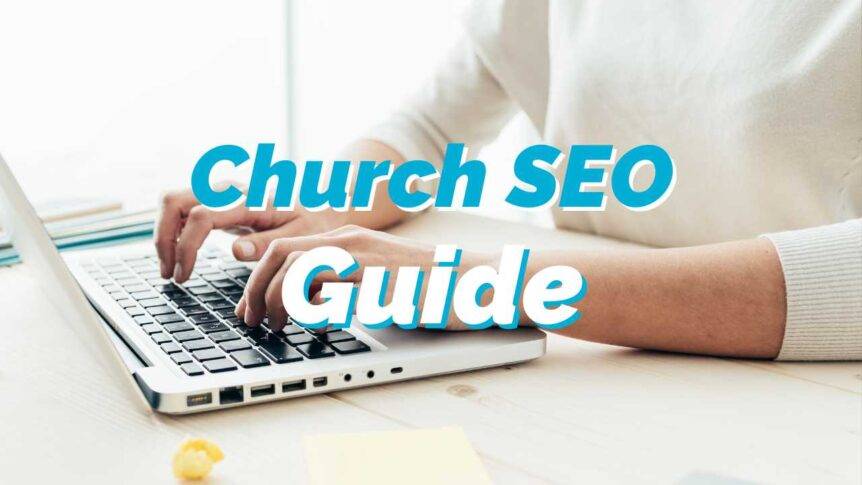



Comments 4
Thank you for sharing these helpful website optimization tips. The section about Google Business Profile was particularly informative. Looking forward to implementing some of these suggestions for our church website’s online presence.
Thanks for explaining everything in such a clear way – especially the Google Business Profile optimization part. Will definitely be using these tips to improve our church website.
Thank you for this information. I will try and implement this for my church website in Brazil.
“Fantastic guide! As a pastor, I’ve seen firsthand the power of SEO in reaching our community. These tips are invaluable for ensuring our church’s online presence reflects our mission and values. Thanks for sharing!”